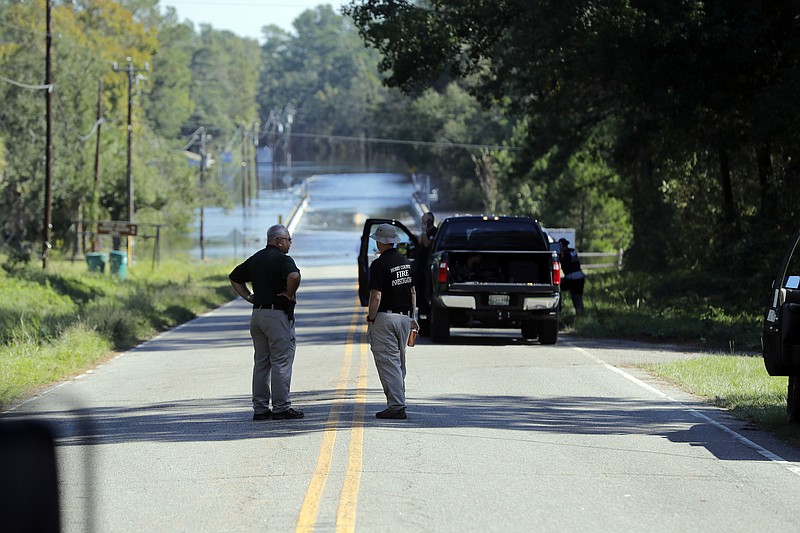COLUMBIA, S.C. (AP) — Overhauling how South Carolina handles mental patients who must be brought to hospitals under the order of a doctor or a court is a more difficult problem than they expected, a group of senators said.
Sen. Marlon Kimpson began working on the bill in fall, just weeks after two mental health patients drowned in the back of a locked police van while being moved during Hurricane Florence.
But the piecemeal system put into place 60 years ago to move at most a few thousand patients between massive mental intuitions is broken as county sheriff’s offices bear most of the burden of crisscrossing the state with an estimated 15,000 patients a year.
The latest idea discussed at a subcommittee meeting Wednesday was creating an expanded police unit under the Department of Mental Health, based in several regions across South Carolina. Those officers would be in a Therapeutic Transport Unit, specially trained to deal with people suffering from a mental crisis.
The unit likely would include a mental health professional to assess if patients are a danger to themselves or the public and need to be restrained or locked away, or if they can be taken unrestrained or even by a family member to treatment.
Subcommittee Chairman Tom Davis delayed a vote on the proposal. The Beaufort Republican wants to hash out the details on the new police unit so he can ask for an estimate on how much it might cost before sending the legislation forward.
“It’s going to end up being a much more powerful bill,” Davis said at the subcommittee meeting.
The Department of Mental Health has about 140 officers that protect the state’s mental hospitals, clinics and its sexually violent predator treatment program. Agency officials said they will need a lot more officers to expand their role to patient transport but need a few days to come up with an estimate.
The state’s sheriffs did not like the bill as originally written requiring local agencies to create the transportation teams, South Carolina Sheriffs Association Executive Director Jarrod Bruder said.
The exact number of mental patients transported by deputies is not kept by the state. But after surveying his members, Bruder estimated it is about 15,000 patients a year.
One police agency told Bruder deputies logged more than 800,000 miles moving mental patients, mainly from hospital emergency rooms where doctors determine they should be involuntarily committed to mental health treatment centers, Bruder said.
Many deputies don’t have special training and have to use police cars or vans that make the patients — who have committed no crime — feel like criminals, Bruder said.
“They are suffering from medical conditions and should be treated as such. Not as criminals,” Bruder said, asking the senators to reform the system.
Kimpson, a Democrat from Charleston, has promised to push this bill in the memory of 45-year-old Wendy Newton and 43-year-old Nicolette Green, who died in September when two Horry County deputies drove into a washed-out section of a highway covered by floodwaters, authorities have said.
The officers were able to escape as the van filled with water, but then said they were unable to return to rescue the women from the back of the locked police van. The women had been committed by doctors. Both officers face criminal charges.
Kimpson said although he wants to make sure no one ever dies the way Newton and Green died, he also wants to help out law enforcement so local police officers can go back to patrolling neighborhoods.
“This bill is your friend,” Kimpson told the law enforcement community.

